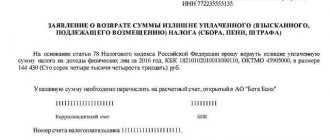How to find out a court decision on a divorce via the Internet by last name
A possible way out of this situation is to cooperate with a lawyer. The lawyer has the right to send requests to government bodies, including the registry office. Representatives of these institutions are obliged to respond to a lawyer’s request within the period established by law.
Sometimes it’s not possible to talk to your partner, and sometimes you just don’t have the courage. Contacting a lawyer is a good option, but quite expensive. The services of a private detective also require significant material costs.
Find out the court's result on divorce by last name
Fact of dissolution Divorce is issued for couples living in an officially registered marriage. When separating, former spouses are faced with the obligation to draw up appropriate documents confirming their acquired status.
Some time must pass for the corresponding registration entry to be made in the registry office: three days for the extract from the court decision to be transferred to the state body; some time to carry out the standard procedure for registering a divorce and issuing the relevant documents.
How to find out a court decision by last name online
The most reliable information about what decision the court made can only be found out by personally attending the court hearing. In this case, participants usually receive a paper version of the court's conclusion. However, for various reasons, those involved are not always able to take part in the hearings, and are forced to look for other ways to find out about the decision made.
Dear readers! The article talks about typical ways to resolve legal issues, but each case is individual. If you want to find out how to solve your particular problem , contact a consultant:
We recommend reading: Driver card for tachograph who should pay for it
How to find out a court decision via the Internet
Check Justice - https://sudrf.ru/. After going to the site, you will need to find and go to the “Search for judicial acts” section, or click on the “Check” button. A window will appear for the user to enter the available data. You can use any data from the court hearing.
In addition, you can find out about the court decision using specialized Internet portals. They provide information based on the defendant's input by case number or consideration date. For these purposes, you can use the following sites.
How to find out a court decision in the Russian Federation by last name in 2021
Hello. Yes, everything is within the law. The official website of the court that made the decision has the right to post such information. Federal Law No. 262 “On ensuring access to information about the activities of courts in the Russian Federation” was adopted, from which it follows that all courts undertake to provide residents of the Russian Federation with access to information about trials and decisions on them. All details are published on the official websites of the courts. Today, according to the laws of the Russian Federation, the results of hearings of cases held in closed sessions, on crimes against sexual integrity, on adoption, etc., are not publicly available online.
Hello. You can obtain information about a court decision via the Internet; there are special services for searching court cases by last name. This is possible thanks to Law FZ-262 “On ensuring access to information about the activities of courts in the Russian Federation.” According to it, every citizen has the right to receive information about court decisions. However, not all records may have information in the public domain. There are cases that are not made publicly available, for example: adoption, declaring a citizen incompetent, crimes against sexual freedom and integrity, forced treatment in a psychiatric hospital and some more.
The company does not take a share
But in court she faced an unexpected obstacle - the company was owned by several partners. And they opposed the lawsuit. In their opinion, their consent was required to transfer the right to a share in the business. By the way, the company’s charter also included a provision requiring all partners to approve a change in ownership of the share in the business. But local courts considered it possible to transfer the share as a result of the division of the spouses’ property. But the Supreme Court did not agree with them. And now - about the details of the dispute. The commercial structure in question had three owners. Everyone had a share. The former spouse owned 50 percent of the authorized capital. The second merchant had another 37.5 percent and the third participant had 12.5 percent. More precisely, the participants. Problems fell on the owner of the largest share of the company one after another. First, he was officially declared bankrupt, and six months later his marriage broke up. After the divorce, his ex filed a lawsuit for division of property. In addition, the ex-wife claimed rights to a share in his business. In addition, the court involved his partner as a “third party.” Tom didn’t like the whole idea of the division and objected. In his opinion, this requires obtaining the consent of the other participants. But the court rejected his argument. The district court decided that the spouse receives only property rights in the company, but not corporate rights. Therefore, the court divided the husband's share in the company equally between the spouses. And the ex-wife wrote an application to the tax office to enter information about herself in the Unified State Register of Legal Entities as another owner of the company. But then the second co-owner filed a lawsuit and asked to return to the company the share that went to the ex-wife of his partner. The merchant indicated that according to a clause in the current charter of the company, its participant is allowed to “sell or otherwise alienate his share only with the consent of other participants.”
All three local courts disagreed. In their opinion, the charter states that approval is needed only for the transaction, and the right to a share in the company passed to the ex-wife “on the basis of a judicial act.” The charter does not say how to divide shares in the event of a divorce. This means that approval was not required. The offended partner went all the way to the Supreme Court. There, as an argument, he cited the position of the Constitutional Court (Determination No. 1564-O, dated 2014).
In the event of a divorce, it is better for spouses to immediately decide on the division of shares in the business themselves.
The Constitutional Court then stated that the requirement for mandatory consent to transfer shares to third parties in the charter is established for all methods of alienation. The representative of the co-owner and the plaintiff argued that previous courts had incorrectly interpreted Article 21 of the Law on Limited Liability Companies (“Transfer of a share or part of a share of a company participant in the authorized capital of the company to other company participants and third parties”). Under this rule, the consent of others to the transaction is not required.
The ex-wife's representative objected: his trustee had two ways to protect her rights. The first is to declare oneself as a creditor in her husband’s bankruptcy case, the second is to divide the jointly acquired property through the court. The lady studied the charter and decided that it does not prohibit the transfer of a share to a third party by court decision. The consent of the participants is required only when making a transaction, and a court decision is not considered a transaction. Judging by the position of the ex-wife, she already owned the share as jointly acquired property. It was just not clear which part. So the court only determined the shares. The situation from the point of view of lawyers is as follows. The charter of this company allows for the transfer of shares to legal successors. The partners knew that the owner of the half share had a wife and children. This means that they understood that they could become part of the participants. The former spouse will not be able to receive the property equivalent of her share if her share is transferred to the company. But the society's participants will receive its share for free. This is unjust enrichment. The correct solution is to return the share to the bankruptcy estate. After selling it, the lady will receive money for her part. Experts emphasize that the transfer of a share after a divorce does not automatically entail the acquisition of the status of a participant in the company. In order to avoid getting into a similar situation, experts advise that when dividing the property of the spouses, determine the possibility of the spouse becoming a member of the company. If the charter contains a provision on the consent of other participants, then in the absence of such consent, pay compensation. And the Supreme Court overturned the decisions of all courts and ordered the dispute to be reconsidered.
How to find out a court decision in a civil or administrative claim
If the name of the court in which the trial took place is unknown, you can simply enter your last name, case number and city name in any search engine - the search results will certainly contain the necessary information, provided that the city court complies with current legislation.
How to find a court decision on divorce by last name
So how can you find out a person’s marital status via the Internet? Searching for a person's marital status is possible through social networks. Nowadays, many sites, be it Vkontakte, or Facebook, or Odnoklassniki, allow you to search for people using certain parameters.
We recommend reading: Pankovka cost of one day of kindergarten stay
Among other things, the vast majority of people indicate their marital status on social media pages. Let's summarize: You can find out a person's marital status using passport data only about yourself - judicial authorities or civil registry offices simply will not disclose data to you from third parties.









